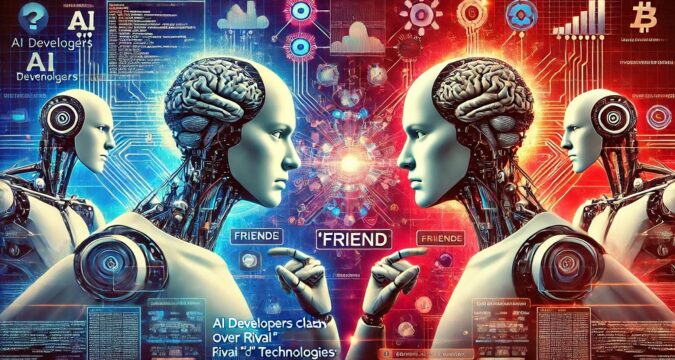
Artificial intelligence (AI) and blockchain technology are regarded as the leading archetypes in today’s digital world. After all, they are helpful in creating systems that can automatically conduct crypto transactions and processes that do not require human presence in control.
AI-to-AI crypto transactions are just one of the uses of this development; AI agents conduct trade and other financial activities on a platform without the supervision of their human counterparts. It is thrilling when considering its potential benefits and impact.
The Rise of AI in Blockchain Technologies
AI bots have existed in the blockchain system for a number of years, with the first being simple ones, such as trading on decentralized exchanges. These bots would gather data in order books, keep track of price fluctuations, and trade without any human touch.
They became dominant tools utilized by traders seeking to gain an advantage over their competitors by virtue of time and efficiency. However, there has been progress.
Now, AI is not just an analytical program that tracks fluctuations in asset prices; it is an independent operative fully capable of performing intricate financial operations independently.
AI’s involvement in DeFi has created a platform for more advanced applications. Now, tasks such as liquidity management, arbitrage, and trading styles are performed with the help of bots, eliminating human involvement.
How AI-to-AI Transactions Work
AI-to-AI crypto transactions utilize AI and smart technologies to implement algorithms enabling AI agents to trade, plan, and exchange with other AI agents. An artificial intelligence agent will perform all buying, selling, and exchange actions toward the trading partner’s agent without any human interference.
These AI agents are made to suit specific actions at a given time. Such capabilities enhance an extensive range of transactions faster than a human being, increasing efficiency or the profit-earning potentials in the crypto markets.
Advantages Of AI-to-AI Transactions
These types of transactions offer several benefits.
Speed and Efficiency
Compared to human capabilities, AI bots can analyze enormous amounts of data and understand it all in a matter of milliseconds. This is an advantage given the very competitive world of crypto trading.
These processes could be carried out in a few milliseconds as long as there is AI because processes are also streamlined.
Cost Savings
No external agents are needed for the transactions, leading to reduced costs for the people using it. In addition, these AI agents are highly scalable; as the transaction volumes grow, the system can process more transactions with little increase in overhead costs.
24/7 Operations
AI bots need no rest. They will continue to trade so long they find trading opportunities. This is an advantage in the volatile crypto market, as the market itself is active, whether it’s day or night.
Improved Liquidity
AI Agents can enhance liquidity in decentralized finance infrastructures. The availability of sufficient liquidity for trading will eliminate the chances of slippage in the market.
This also increases the chances of the market’s liquidity being sufficient during peak trading activities.
Application in the Real World
Many projects today have harnessed AI-to-AI crypto trading. Fetch.ai is one such project, and it leverages autonomous AI agents to perform transactions in real-time across fields such as finance, logistics, and supply chain management.
These agents work collaboratively to achieve the set objectives. Another instance is that of Numerai, a hedge fund that makes use of deployment models to forecast the direction of stock movements in the market.
Both examples illustrate how AI-to-AI transactions are more than crypto trading and how they impact the financial markets.
Risks and Challenges
Despite the numerous benefits of AI-to-AI crypto transactions, there are also risks and challenges.
Volatility Risk
Given the volatile nature of cryptocurrencies, the growing use of AI bots is not reflexive to market swings. During highly volatile market conditions, bots could make hasty trade executions, resulting in huge losses.
This is especially true in DeFi markets, which often experience unanticipated price shifts.
Systemic Vulnerabilities
Flash loan attacks and other hacking schemes are a possibility when using AI bots, leading to significant financial losses. Moreover, there are still challenges regarding the security of systems that incorporate AI.
Conclusion
No doubt, AI-to-AI crypto transactions are changing the inner workings of blockchain networks. The advantages of such technology are diverse: speed, maximum efficiency in the consumption of resources, and minimum operating costs that any organization can manage.
As AI begins to breach the blockchain buttonhole, this would be the most suitable period for advancing the fast-growing DeFi sector.


